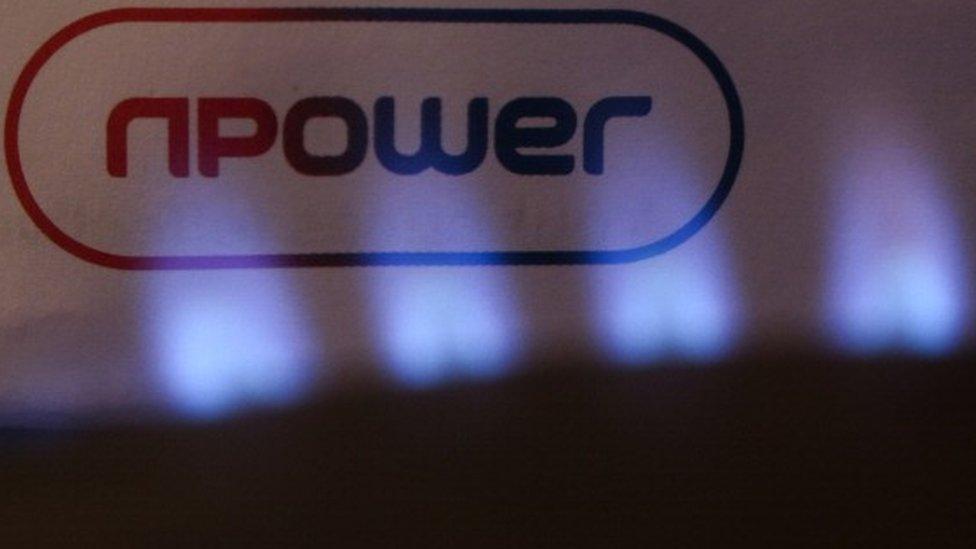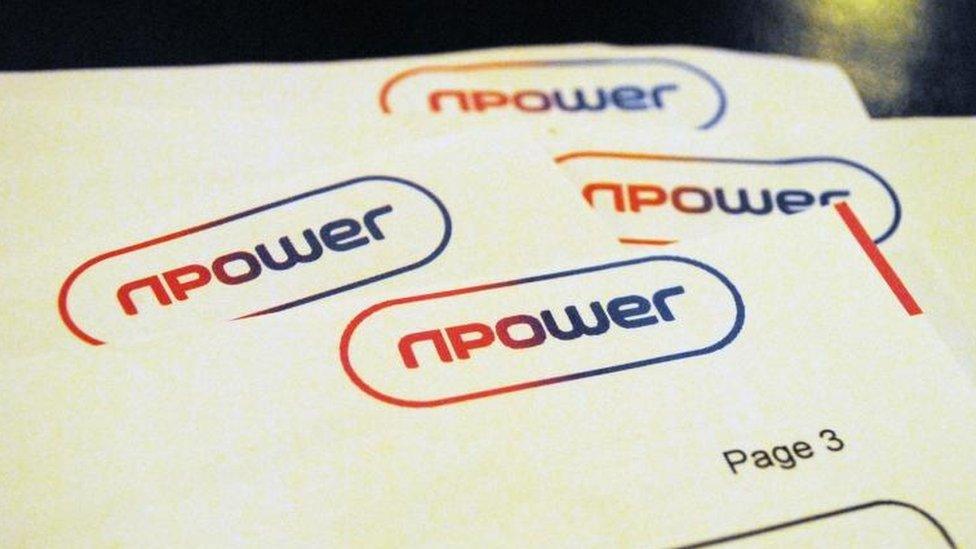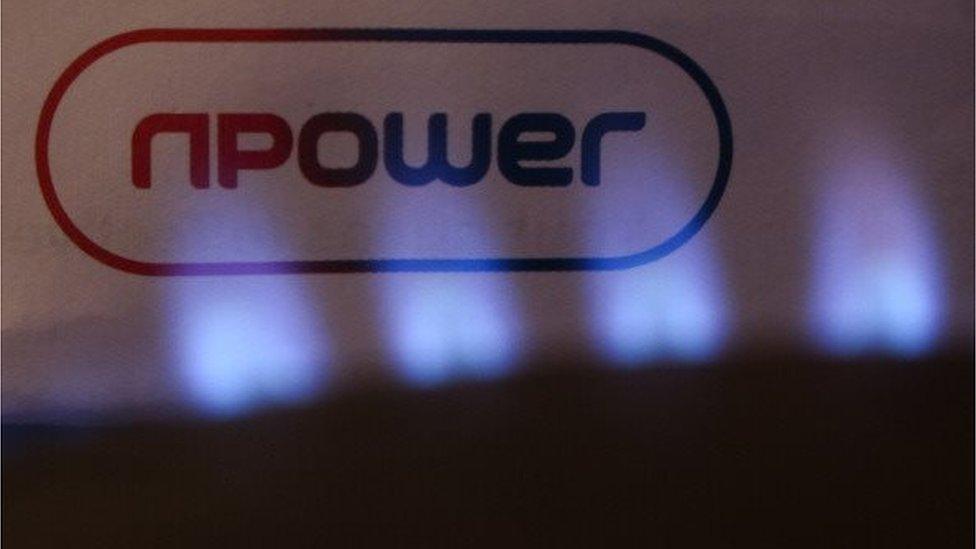Npower job losses 'devastating blow'
- Published

Unions have reacted angrily to the announcement that energy firm Npower is to cut 2,400 jobs in the UK by 2018.
Unison warned the job losses would deal a "devastating blow" to communities across the UK.
The job losses come as Npower announced annual losses of €137m (£106m) compared with €227m profit in 2014.
The "big six" energy firm also lost 351,000 customer accounts in 2015 and has been plagued by complaints over billing.
In December, Npower was fined a record £26m by the energy industry's regulator, Ofgem for its failure to bill customers correctly and deal with complaints effectively.
The energy firm's parent company, Germany's RWE, warned that billing issues at Npower would continue throughout 2016.
Npower currently employs 11,500 people in the UK, of which 6,668 are full time posts.
It said the job losses would be among both its directly employed staff and contractors.
Workers 'paying the price'
While job losses at specific sites have yet to be confirmed they are expected to be spread across offices, including some in the Midlands and the north of England.
There will be no job cuts at any of Npower's power stations.
Last month, the company announced the closure its office in Burton-on-Trent which will result in up to 200 job losses.
The union Unison said one of two Npower offices in Leeds will close, it's not known yet whether staff affected will be offered alternative roles.
The general secretary of Unison, Dave Prentis, said: "Npower has been in trouble for some time thanks to poor decision-making at the very top, and workers are now paying the price.
"The company's failure to invest properly in new systems has left it with one of the worst customer service records in the business.
"The news suggests that Npower's German owner isn't terribly committed to its UK operations. Cutting a fifth of the workforce will leave the already struggling business in an even worse state. Now months of uncertainly lie ahead for a workforce whose morale is already at rock bottom."
Eamon O'Hearn, of the GMB union, said: "GMB is disappointed that hard-working members, many of whom have experienced significant disruption and uncertainty over the past 12 months, are set for more uncertainty over the next 12.
"GMB members, in particular those in customer-facing roles, have been instrumental in helping the company to turn around the retail business and we deserve to know the full picture as soon as possible."
Energy Secretary, Amber Rudd said: "All job losses are regrettable and I have every sympathy for the people who are affected by them. Support will be available from Job Centre Plus to help those facing redundancy move into new jobs as quickly as possible.
"It's really important that consumers are able to trust the energy companies and know they're getting a good deal. That's why we're promoting more competition and switching so that energy companies realise they have to put their customers first."


Analysis: Joe Lynam, BBC business correspondent
Npower, which used to be known as National Power, had until recently a serious customer service problem. It consistently came bottom or near bottom of Ofgem's naughty step list for complaints.
That's meant Npower has slipped from 2nd to 6th largest energy supplier in the UK. Ease of switching also meant that the company lost 351,000 customer accounts last year alone to rivals.
And the big winners from that churn have been the rapidly growing suppliers outside the "big six". The so-called independents have proven to be far nimbler at adjusting to changing oil prices than their bigger rivals. They've also learned how not to treat customers poorly. First Utility has around a million customers and Ovo not far behind.
That's still a good bit behind Npower with its 3.5 million customers but the yawning gap is no more.

'Too much, too soon'
Npower described its annual results as "extremely disappointing" and announced the start of a two-year programme to "simplify its business processes".
"They [the results] show a business that tried to do too much, too soon while not focusing enough on the fundamentals in a constantly changing market," said Paul Coffey, chief executive of Npower.
"This led to over complicated processes and procedures resulting in unhappy customers, too many complaints and extra costs to put things right."
But RWE also blamed government schemes to make homes more energy efficient for the "weakening our market share".
"Under Energy Company Obligation major UK energy firms such as Npower are obliged to finance measures to increase the energy efficiency of households and are therefore at a cost disadvantage compared to smaller providers, which do not have such obligations", the company said.
RWE announced a €637m (£493m) annual group loss, compared with a profit of €2.2bn a year earlier.
It blamed the slump in earnings on a series of write downs in the value of its UK and German power plants amounting to €2.1bn in 2015.
They had resulted from the collapse in commodity prices and, in particular, the ongoing depression in the price of coal that had caused German wholesale electricity prices to plummet, RWE said.
In the UK, RWE wrote down £450m of assets, leading its power generation business into a annual loss of £55m.
Npower's main plants in the UK are in Pembroke and Aberthaw in Wales and Staythorpe in Nottinghamshire.
- Published8 February 2016

- Published6 March 2016

- Published18 December 2015

- Published6 March 2016
